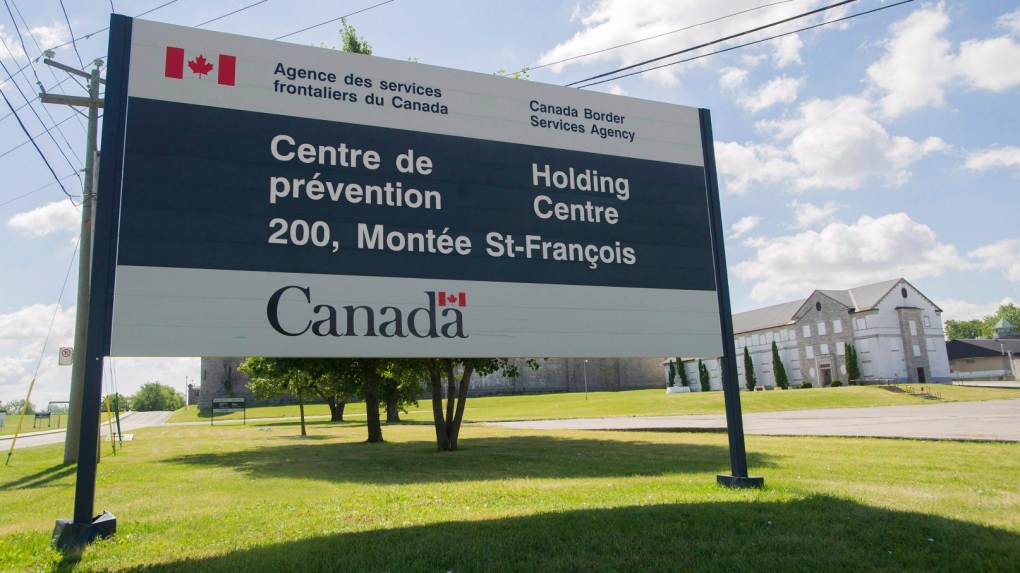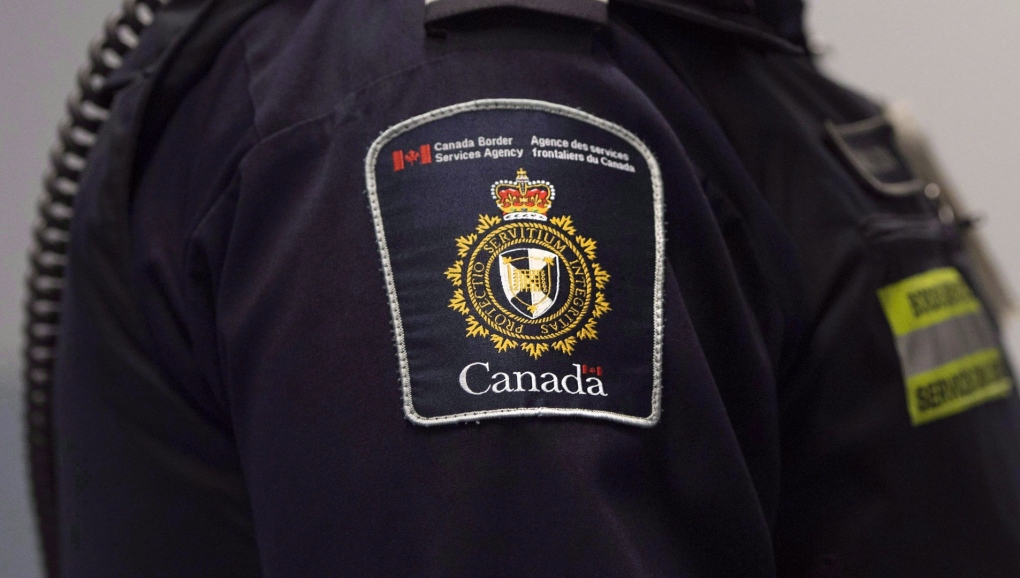With a ninth province now indicating it will stop housing immigration detainees in its jails, advocates and lawyers say there needs to be a focus on community-based alternatives that respect the human rights and dignity of those individuals.
"Alternatives to detention should be first and foremost," said Deanna Okun-Nachoff, an immigration and refugee lawyer based in Vancouver, in a phone interview with CTVNews.ca.
"There should be recognition that immigration detention is not the same as criminal detention. In a lot of cases, there's no criminal wrongdoing, and therefore, there shouldn't be the same degree of a punitive aspect."
Mario Bellissimo, an immigration and refugee lawyer in Toronto, agreed.
"The two worlds were never meant to coexist. Immigration detainees should not be in provincial jails,” he told CTVNews.ca in a recent phone interview.
The Canada Border Services Agency (CBSA) makes agreements, under the Immigration and Refugee Protection Act, to hold immigration detainees in provincial jails. In recent weeks, P.E.I. became the latest province to decide to discontinue its arrangement with the CBSA.
The CBSA detains permanent residents or foreign nationals, including minors, under certain grounds.
Typically, people are held in immigration detention for three reasons — the agency is unable to verify their identity, they may pose a threat to public safety, or they're considered a "flight risk," a term the CBSA uses for those they believe may not show up for a proceeding or removal order.
They're held on administrative immigration grounds, not on criminal charges or convictions.
These individuals are detained in either three immigration holding centres — in Quebec, Ontario and British Columbia — or in provincial jails. In some cases, the CBSA uses "alternative detention" programs, such as halfway houses or electronic monitoring bracelets, to allow these individuals to remain in the community while keeping tabs on them.
But there have long been concerns surrounding the conditions people are subjected to while in immigration detention — especially when they're held in maximum security jails and solitary confinement, with no set release date.
The high-profile case of Abdurahman Ibrahim Hassan, a Somali refugee struggling with mental health issues who died in CBSA custody in 2015, is one such example. The jury at an inquest into his death recommended ending the practice of housing immigration detainees in provincial correctional facilities.
Provinces scrap contracts with CBSA
Since July 2022, nine provinces — all but Newfoundland and Labrador — have decided to end their detention arrangements with the CBSA, in some cases citing their commitment to "upholding human-rights standards." P.E.I. became the latest to do so, “in order to further consider and align with other provinces,” a spokesperson for the province’s Department of Justice and Public Safety confirmed to CTVNews.ca.
"P.E.I. has made the decision to join several other provincial counterparts in not using provincial correctional facilities to hold immigration detainees," Kip Ready said in a written statement.
Amnesty International Canada and Human Rights Watch have been calling on the federal government to abolish the practice of immigration detention as part of their #WelcometoCanada campaign.
Julia Sande, a lawyer and campaigner with Amnesty International Canada, said the human rights organizations are "thrilled" to see P.E.I. join eight other provinces in "ending their complicity" in the country's "rights-abusing" immigration detention system.
"It's wonderful to see these provinces making a stand," Sande said in a phone interview with CTVNews.ca.
"And at this point, it's difficult to understand why the federal government is solely responsible for immigration detention. (It) doesn't seem to be taking note and has not committed to following suit to ending the practice in provincial jails certainly, but also to getting on the path to ending immigration detention altogether."
Aaron McCrorie, vice-president of intelligence and enforcement at the CBSA, expressed disappointment at P.E.I.'s decision. He said the federal agency is examining its options for immigration detention moving forward.
"My initial reaction is disappointed because the provinces have been important partners for the CBSA as we pursue our mandate to enforce the provisions of the Immigration and Refugee Protection Act," McCrorie said in an interview.
"In light of the fact that provinces are withdrawing their support, we are starting to look at how we can take on that burden and are updating our facilities so that they will be able to accommodate high-risk detainees."
Immigration detention at a glance
McCrorie said the Immigration and Refugee Board makes the decision about whether to detain somebody and maintain that detention. He said the CBSA has to appear before the board 48 hours after detaining somebody, again two weeks later and then monthly after that.
"Most of the time, people in detention are not there for an extended period of time, but sometimes there are the rare cases that do occur, but there is careful oversight," he said.
Currently, McCrorie said only two per cent of people in the CBSA's custody are in detention, including 0.5 per cent who are considered "high-risk detainees" that are in jails and 1.5 per cent that are in immigration holding centres. The other 98 per cent — nearly 13,000 individuals — are in alternative detention programs, he added.
According to federal data, the CBSA spent $82.7 million on its detention program in 2022-23, but it is unclear whether this also includes spending on alternative detention programs.
CTVNews.ca requested more clarity from the CBSA surrounding the costs and numbers of people in immigration detention, but did not receive a response prior to publication.
 A Canada Border Services Agency immigrant holding centre is shown in Laval, Que., on Monday, August 15, 2016. THE CANADIAN PRESS/Graham Hughes
A Canada Border Services Agency immigrant holding centre is shown in Laval, Que., on Monday, August 15, 2016. THE CANADIAN PRESS/Graham Hughes
McCrorie described "high-risk" detainees as people who have "a history of violence that pose a risk to other detainees or people."
Sande said the CBSA "does a really good job" of trying to justify the immigration detention system by using words like "high risk" and labelling people as a "threat," when immigration detainees who have a criminal background have already gone through the criminal justice system and have either served a sentence, their charges were dropped or they posted bail.
"The immigration detention system is secondary. The criminal justice system takes precedent," she said.
A push for 'rights-respecting' alternatives
The immigration detention regime has changed "considerably" in recent years, with fewer people being detained in provincial jails and more focus placed on alternative detention programs, McCrorie said.
"That wasn't the case 10 years ago, but that is the case now. So we are trying to minimize the tension as much as possible," he explained.
Sande called this "certainly welcome," but said the alternatives to detention must respect the human rights and dignity of individuals. Alternatives that "just mirror bail conditions for the criminal justice system," where individuals have to wear ankle monitors or report to CBSA if they are mere minutes late to a meeting, don't fit that bill, she added.
"We don't need to be spending an extraordinary amount of money to violate people's rights," Sande said.
"We can have people in the community and what we push for is the use of rights-respecting, community-based alternatives to detention."
Alternatives, she said, should "provide supports," including mental health support and more investment into organizations that help migrants, rather than "focusing on a really punitive or invasive" detention system.
Bellissimo, the lawyer based in Toronto, shared a similar sentiment.
He said alternative detention programs should include access to mental health services, interpreters or translators, along with the contact information of multiple lawyers so individuals have an opportunity to contact a representative of their choice.
"Also, a discussion of what it means when they're being transferred, what's the plan?" Bellissimo added.
"Try to help these individuals understand why they are being returned (to their home country), what the process will be when they are being returned. Will they be escorted? Will they in any way be handcuffed? All of these things really help an individual maintain their dignity."
 A CBSA agent stands watch at Pearson International Airport in Toronto on Tuesday, Dec. 8, 2015. THE CANADIAN PRESS/Darren Calabrese
A CBSA agent stands watch at Pearson International Airport in Toronto on Tuesday, Dec. 8, 2015. THE CANADIAN PRESS/Darren Calabrese
The Vancouver-based lawyer Okun-Nachoff said she doesn't believe the country should end the practice of immigration detention altogether because there are circumstances where a person "may in fact be a danger to the public." But these should be "exceptional situations" and not just a "run-of-the-mill determination" that a person may not appear for a removal order, she added.
Okun-Nachoff said individuals should not be detained when there are "reasonable alternatives" and that there should be a "much more substantive overview and oversight of immigration detention."
Human Rights Watch argued in a recent report that the CBSA's lack of oversight has "repeatedly resulted in serious human rights violations in the context of immigration detention."
In May 2022, then-public safety minister Marco Mendicino introduced a bill to establish an independent watchdog for the CBSA and the RCMP. The bill passed House committee study this past November and now has more debate ahead before MPs vote on sending it to the Senate.
For now, advocates and lawyers say the immigration detention system needs an overhaul.
As it's currently being run, Sande said people who go through the system tend to develop a different perception of Canada, which tries to promote itself as a "very welcoming nation."
"These are people who fled dangerous situations, persecution or violence in their home countries, and this feeling of relief when they arrived in Canada and thought that they had found safety, only to be thrown into jail, not really understand why and not have any idea of when they would get out, that is deeply traumatizing and breaks their trust in Canada."








































